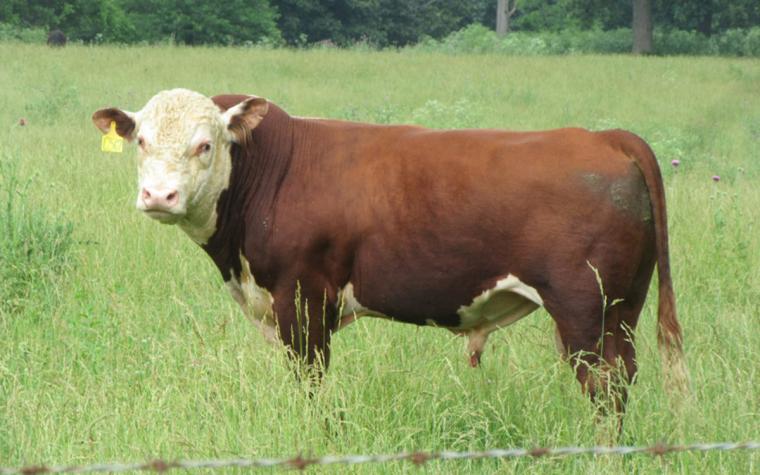STOCKTON, Mo. – “It is important for reproductive performance and profitability of the cattle operation to identify bulls that are not sound breeders and replace them prior to the breeding season,” says Patrick Davis, University of Missouri Extension livestock field specialist.
This is the goal of the Southwest Missouri Fall Bull Breeding Soundness Exam (BSE) Days, which also educate cattle producers on bull management for a successful breeding season, Davis says.
MU Extension cooperated with six veterinary clinics and two pharmaceutical companies to educate 53 farms on bull management; 184 bulls received a BSE. There were 11 bulls that failed the BSE or were deferred to retest later by the veterinarian. That is a 6% failure/deferral rate, which is similar to previous seasons of BSE day results, he says. Reasons for failure or deferral include no semen sample, poor semen quality and bull injury. Bulls that failed can be replaced to help ensure optimum breeding season performance. Bulls that were deferred can be retested in 60 days; if they fail the second test, they need to be replaced to help ensure optimum breeding season performance.
“Optimum body condition score (BCS) is important for bull performance during the breeding season,” says Davis. As part of the educational process, MU Extension specialists evaluated bull body condition score during the BSE days. Fifteen bulls had a body condition score of 4 or less, which is considered thin. Twelve of those bulls were 3 years of age or younger. Since younger bulls are still growing, it is important to monitor BCS and adjust nutrition or substitute the bull during the breeding season so that they don’t get too thin. Allowing the bull to get too thin during their developmental years could impede future growth and performance.
“Bull structure is important for breeding performance and longevity,” says Davis. During the BSE days, MU Extension specialists educated cattle producers on bull structure and foot scoring. Eleven bulls had foot or structure issues. These issues include toe curl, short heel or weak pastern, straightness or stiffness of legs, and swollen hocks. Progression of these issues can affect movement of the animal, which may impair the bull’s ability to breed females. Furthermore, if replacement animals are kept, those bad structure problems will progress in the herd. Davis suggests paying close attention to bull structure to make sure sound bulls are kept and that properly structured bulls are purchased.
Bull BSE days are a cooperative effort of MU Extension, local veterinarians and pharmaceutical companies to educate cattle producers on bull management, identify bulls that need to be replaced and gather data for upcoming MU Extension programming.
If you are a veterinarian in southwestern Missouri who would like to take part in these efforts in the future, contact your local MU Extension livestock field specialist for details.
